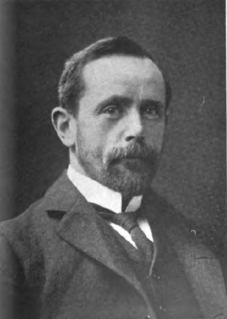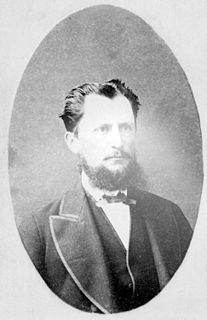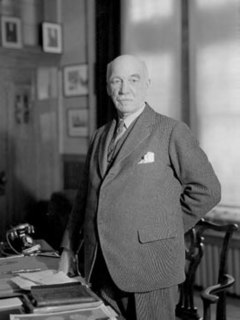Roderick Harold Clive Pringle (January 8, 1871 – May 2, 1920) was a Canadian Senator and lawyer.
Pringle was born in Grafton, Ontario and was educated at Trinity College School in Port Hope, Ontario. [1] He earned a Bachelor of Arts degree from what was then Trinity University in Toronto and was called to the bar in Ontario in 1894. In 1898, he was called to the bar of British Columbia and set up a law practice in Greenwood, British Columbia. [2] In 1903, he relocated to Ottawa, Ontario where he continued his law practice. [1]

Grafton is a community in the province of Ontario. It is in Northumberland County, in the township of Alnwick/Haldimand. It is 12 km east of Cobourg, Ontario on the former Highway 2, with close access to Highway 401. The hamlet is near the geographically significant Oak Ridges Moraine at Rice Lake. Grafton was originally called Grover's Tavern until March, 1832. The original Grover's Tavern, the namesake building of the hamlet, still stands today as the Grafton Village Inn, a restaurant and B & B in the heart of the hamlet. It was also referred to early in its history as Haldimand, which is the name of the township it is located in.

Trinity College School (TCS) is a coeducational, independent boarding/day school located in Port Hope, Ontario, Canada. TCS was founded on May 1, 1865, more than 2 years prior to Canadian Confederation. It includes a Senior School for grades 9 to 12 and a Junior School for grades 5 to 8.

Port Hope is a municipality in Southern Ontario, Canada, about 109 kilometres (68 mi) east of Toronto and about 159 kilometres (99 mi) west of Kingston. It is located at the mouth of the Ganaraska River on the north shore of Lake Ontario, in the west end of Northumberland County. Port Hope's nearest urban neighbour is the City of Oshawa. Since 1868, the town has been home to Trinity College School.
He was appointed to the Senate of Canada by Sir Robert Borden in 1917 and sat as a Conservative for Ontario until his death in 1920 at the age of 49 of a heart condition after a lengthy illness. [2] He represented the Senatorial division of Cobourg, Ontario.

The Senate of Canada is the upper house of the Parliament of Canada, along with the House of Commons and the Monarch. The Senate is modelled after the British House of Lords and consists of 105 members appointed by the Governor General on the advice of the Prime Minister. Seats are assigned on a regional basis: four regions—defined as Ontario, Quebec, the Maritime provinces, and the Western provinces—each receive 24 seats, with the remaining portions of the country—Newfoundland and Labrador receiving 6 seats and the three northern territories each assigned the remaining one seat. Senators may serve until they reach the age of 75.

Sir Robert Laird Borden, was a Canadian lawyer and politician who served as the eighth prime minister of Canada, in office from 1911 to 1920. He is best known for his leadership of Canada during World War I.
Canadian Senate divisions refers to two aspects of the Senate of Canada. First, it refers to the division of Canada into four regional Senate divisions of 24 senators each, as set out in the Constitution of Canada (as defined in subsection 52 of the Constitution Act, 1982, consisting of the Canada Act 1982, all acts and orders referred to in the schedule, and any amendments to these documents. The four regions are the Western Provinces, Ontario, Quebec and the Maritimes. These regions are intended to serve the Senate's purpose of providing regional representation in the Parliament of Canada, in contrast to the popular representation that the House of Commons is intended to provide. While not within any of the original four Senate divisions, Senate seats are also allocated to Newfoundland and Labrador and the three territories. The four divisions can be expanded when the need arises to have an extra two senators appointed to each regional division.








